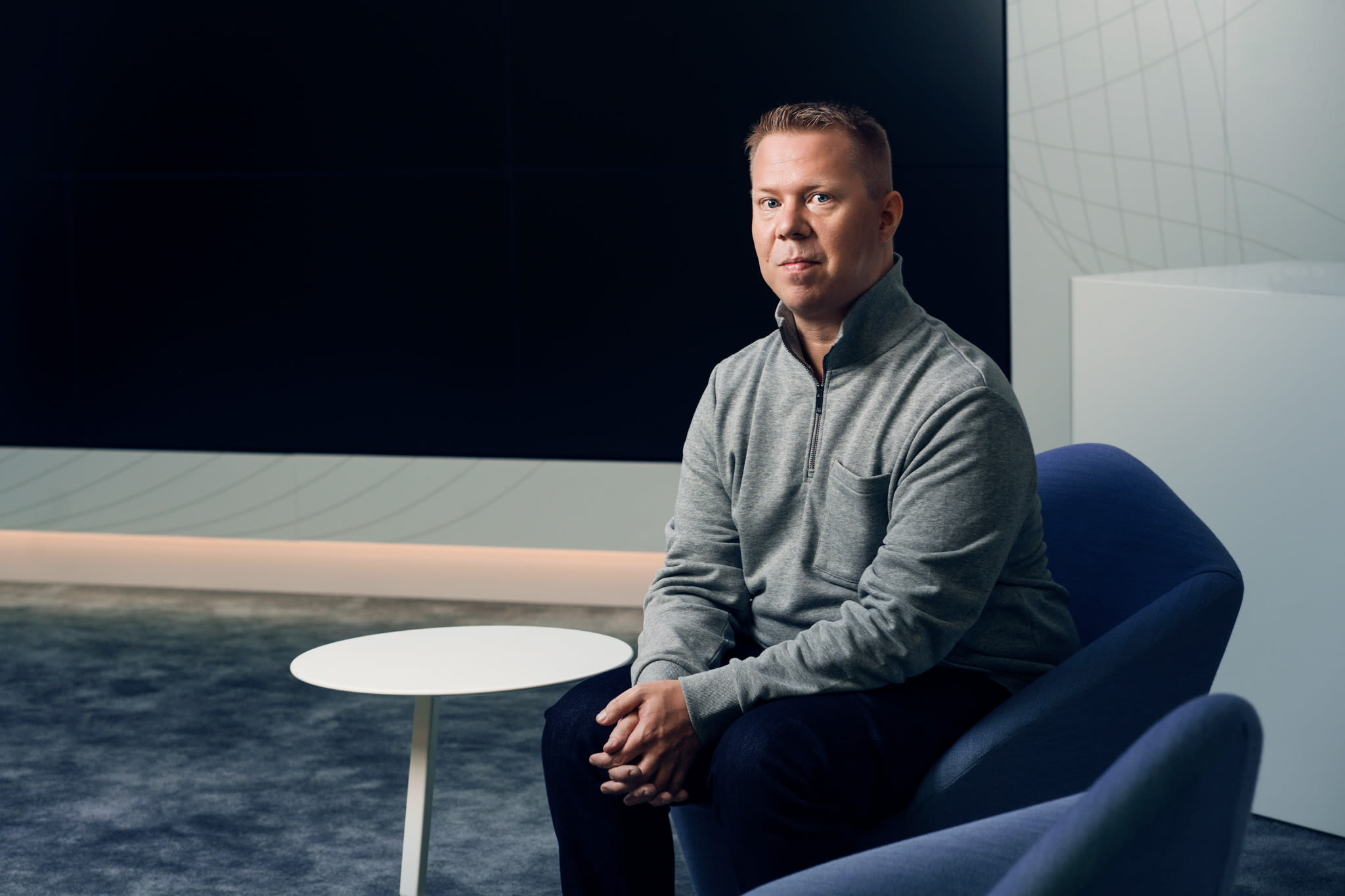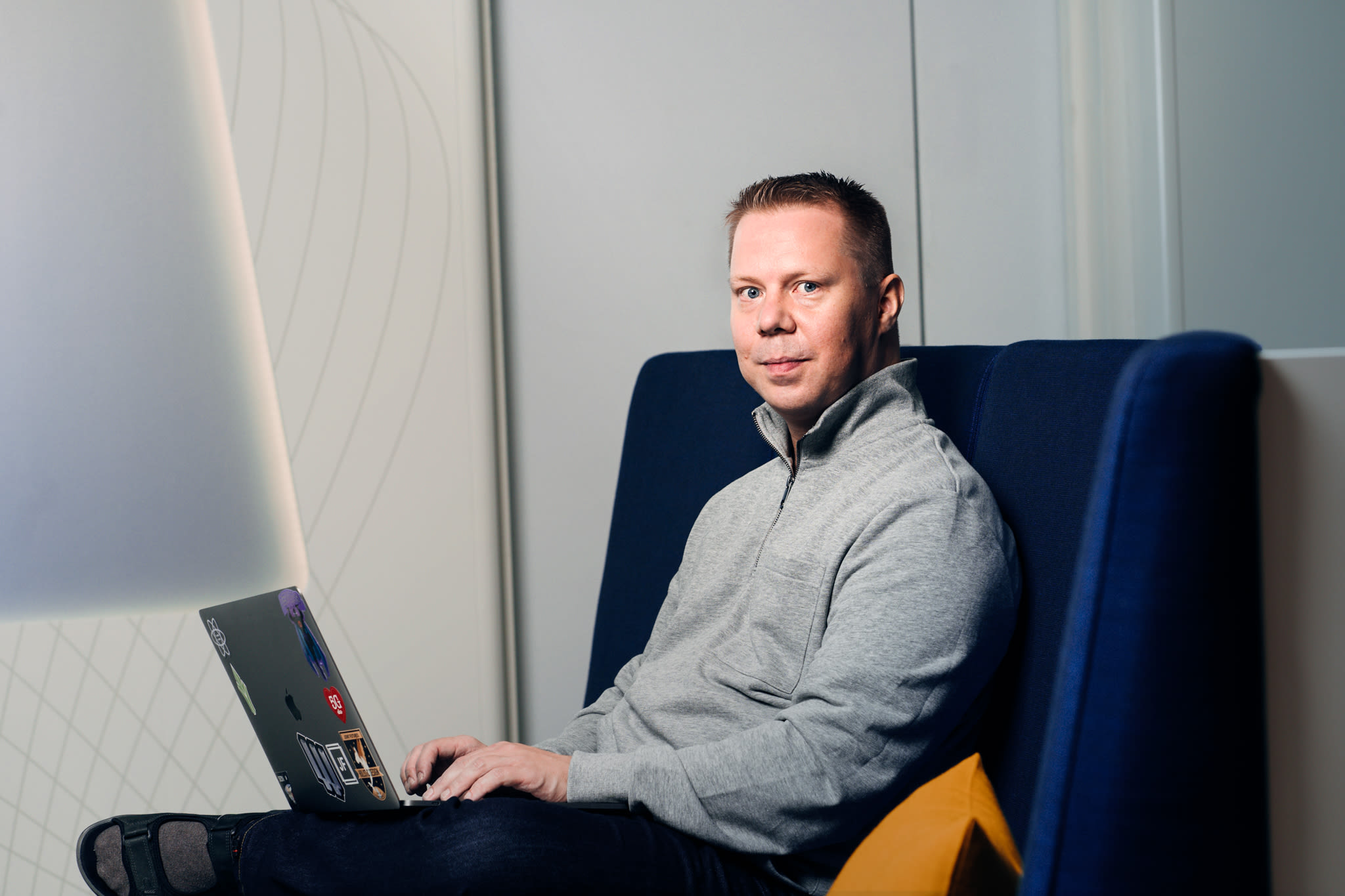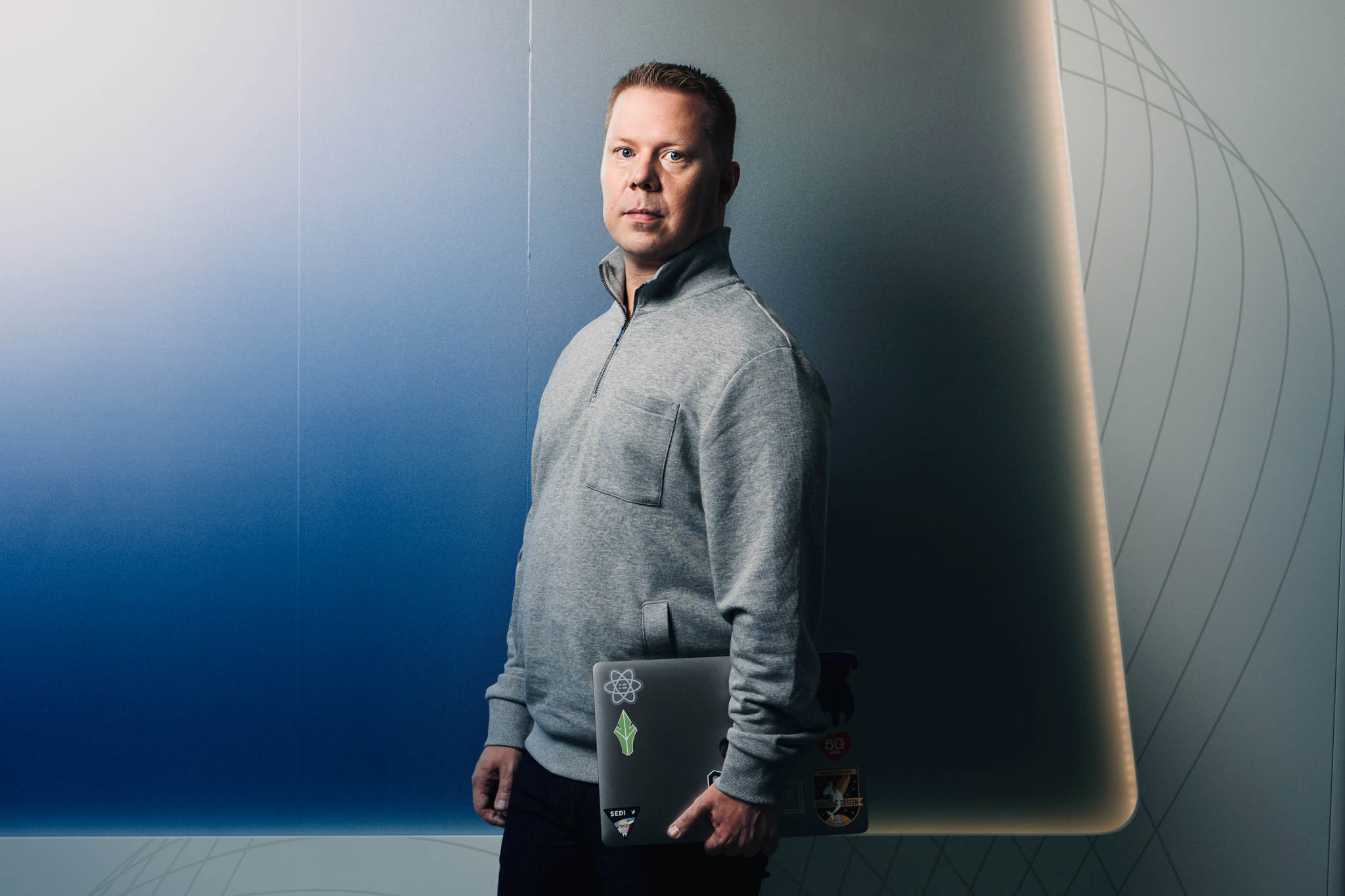Our software development unit is small enough for me to know all my colleagues personally and the place doesn’t smell like a musty old corporation right at the front door! On the other hand, the company is big enough to have enough funding for our development projects”, Harri explains.
For Harri, one clear advantage of working in a larger firm is Elisa’s Scrum Master community, which has the opportunity to kick the thorniest problems forward to a larger crowd of willing helpers. The software developer team also conveniently includes a lot of expertise in areas like cloud technology and databases.
Harri believes that the ability to offer competitive remuneration is also important, as the mobile development veterans at Elisa have strong memories of starting out in their careers in a turbulent time in the IT industry when work started drying up, then stopped completely.
“For me, Elisa is a stable employer, even among the constant change in the industry”, he says.
Elisa offers software developers great career opportunities
Working at Elisa, devs have the chance to choose a path in mobile development, web development, backend systems or device programming, among many other technologies. If the big picture is more appealing than the finer details, the road to becoming a software architect is also open.
A couple of years ago, Harri himself took advantage of the opportunities at Elisa to extend his role as a software developer by becoming a Scrum Master. Now he works in that role in two software development teams, one of which is for Elisa Viihde, a brand well known to many Finns.
“Working as a Scrum Master has expanded my perspective on application development. Now my work is more about working with people, such as in discussing the future of development work with both developers and business people”, Harri explains.


